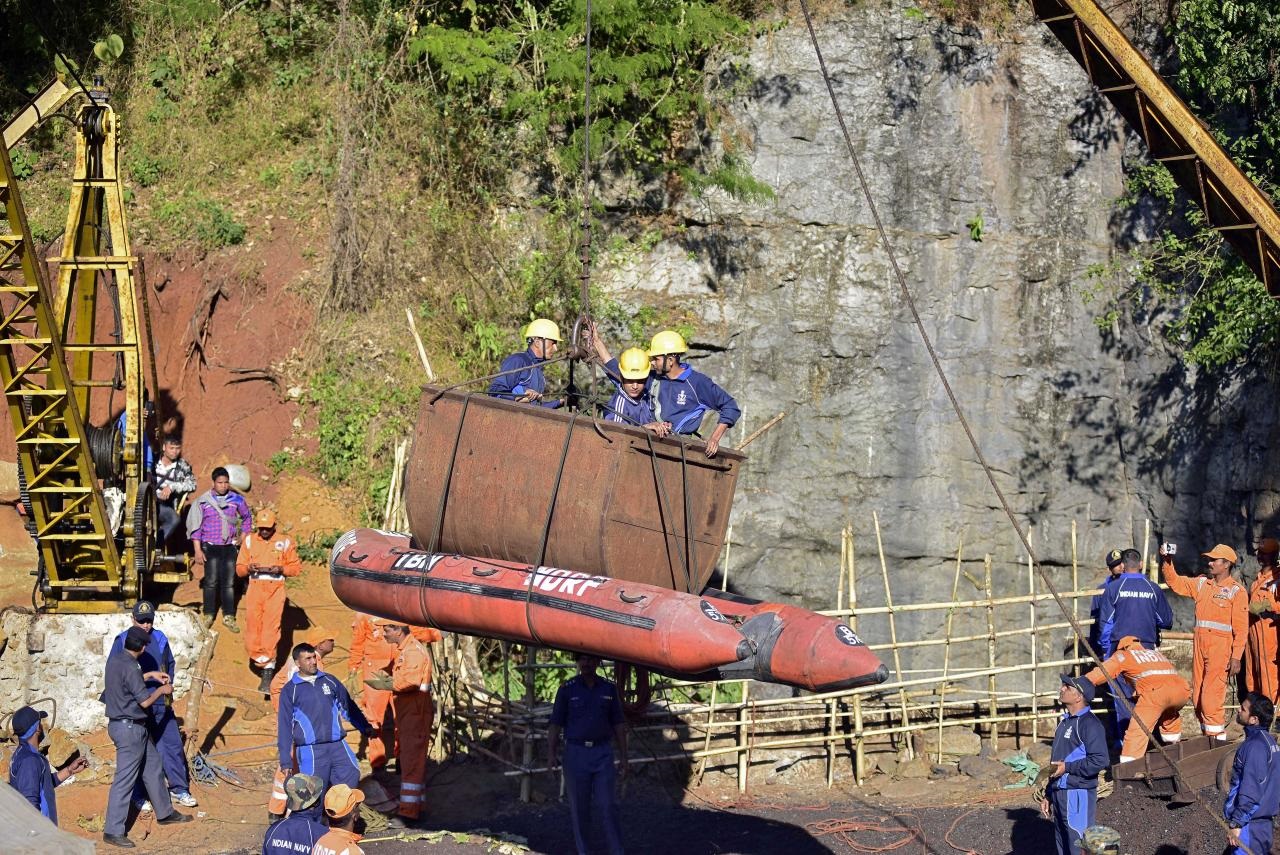NEW DELHI -- India’s Supreme Court on Thursday ordered the government to list the steps it plans for the rescue of at least 15 miners trapped in a so-called “rat-hole” coal mine for three weeks in a remote hilly state, warning that “every second counts”.
The workers were ensnared on Dec. 13 when the illegal mine in the northeastern state of Meghalaya was flooded. Rescuers have so far only been able to find three helmets and two axes underground.
The country’s top court wondered why attempts to reach the miners had not yet been successful.
“Tell us by tomorrow, because for people who are trapped, every second counts,” Justice Arjan Kumar Sikri told the federal government, represented by Solicitor-General Tushar Mehta.
The Meghalaya government told the court that nearly 86 people were working on the rescue effort since Dec. 14, including employees of state-controlled Coal India Ltd, the world’s biggest miner of the fuel.
Kyrmen Shylla, Meghalaya’s disaster management minister, told Reuters both government and private agencies had been involved in the bid to reach the miners, many of whose family members have given up hope.
Rat-hole mining has killed thousands of workers in Meghalaya, including children, before India’s environmental court banned the practice in early 2014.
At its peak, the state produced coal worth $4 billion a year, or about a tenth of India’s total production.
Despite the ban, many mines continued operating here, requiring workers, often children, to descend hundreds of feet on bamboo ladders and dig coal out of narrow, horizontal seams.
The unsuccessful rescue bid has drawn criticism of a lack of urgency shown by government agencies, particularly given the remote location of the mine, a journey to which can take more than five hours from the nearest commercial airport in Guwahati.
“Would we have cared more if the miners had not been at the fringes of national consciousness in the northeast?” senior journalist Vir Sanghvi asked on Twitter.
“I have not given up hope, but our response to this crisis shames us as a nation.”





















































